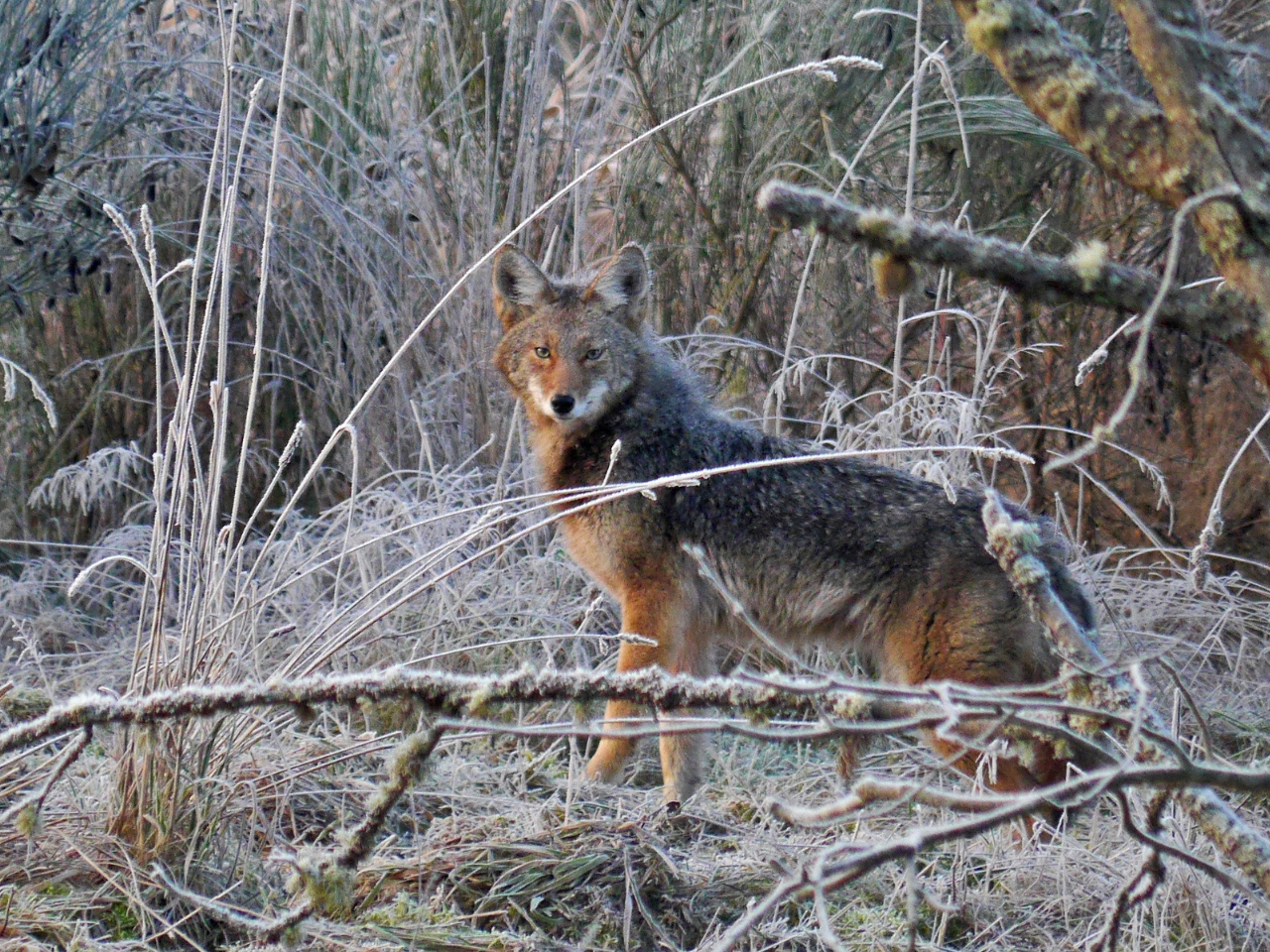On December 21, 2014, a 15-year-old girl found a dead coyote in a steel-jawed leg hold trap in the near NE 187th Pl. and 47th Ave NE in Lake Forest Park (LFP). The girl was walking her dog in the woods on watershed property. The area is LFP Water District property and that agency has been notified, as has the Washington Dept. of Fish and Wildlife. At this point it isn't known who set the trap or if there might be more of them. It is a criminal offense in Washington state to use a steel-jawed, leghold trap, and penalties include up to a year in jail, a $5000 fine or both.
Friends of Lake Forest Park Wildlife
Lake Forest Park residents dedicated to preserving a peaceful co-existence with our local wildlife
Monday, December 22, 2014
Friday, July 19, 2013
Federal wildlife agent: It’s a neighborhood problem, not a coyote problem
Please take a moment to visit the West Seattle Blog to read about a USDA Wildlife Service Agent's message to West Seattle residents looking to lethally remove coyotes from the Admiral neighborhood - "Don’t put your pets in harm’s way. And don’t make any other food source easily available, either. Losing pets to coyotes (or other predators) is a neighborhood problem, not a coyote problem."


Monday, June 10, 2013
Coyote puts on a morning show in January

On a cold and foggy morning, with the sun just beginning to peek through, we spotted this coyote on the far side of the river, just above the weir. The coyote spotted us too, and for the next 5-6 minutes, the coyote gave us a show. As you can see, the coyote was staring at us much of the time, and this show seemed to be somehow for our benefit.
The first two photos are by Ollie Oliver, the rest by Dasha Gudalewicz.
The first two photos are by Ollie Oliver, the rest by Dasha Gudalewicz.
Monday, February 4, 2013
Michael Markarian: Animals & Politics: Federal Trapper Arrested for Animal Cruelty
Michael Markarian: Animals & Politics: Federal Trapper Arrested for Animal Cruelty
Please read The Humane Society Legislative Fund's President Michael Markarian's recent posting on a tragic event that happened in Arizona last week involving a USDA Wildlife Services trapper.
Please read The Humane Society Legislative Fund's President Michael Markarian's recent posting on a tragic event that happened in Arizona last week involving a USDA Wildlife Services trapper.
Federal Trapper Arrested for Animal Cruelty
The USDA’s Wildlife Services program—established more than 80 years
ago with the passage of the Animal Damage Control Act of 1931—wastes
millions of taxpayer dollars recklessly killing animals with steel-jawed
leghold traps, toxic poisons, aerial gunning, and other hideous lethal
methods every year. Several former USDA-Wildlife Services employees and
whistleblowers have described the agency’s deeply rooted culture of
disregard for animals, and for these reasons, have long suspected that
some federal trappers may be committing crimes against animals while
performing work-related duties. They’ve never been caught in the act,
until now.
Thursday, October 25, 2012
USDA’s Wildlife Services - a “service” wildlife can do without
Wildlife Services is a
program of the United States Department of Agriculture (USDA) that spends
millions of taxpayer dollars annually to kill thousands of apex predators—coyotes,
wolves, bears, cougars, and many others—as a subsidy for the livestock
industry. The animals are shot, poisoned, gassed, snared, and caught in leghold
traps - methods that are indiscriminate, ineffective, cruel, and also hazardous
to humans and pets.In
recent years, Wildlife Services has branched out to increase its
programs to
remove wildlife from urban areas - killing animals for eating flowers
and pet
food, digging in gardens, frightening people, and other concerns that
could
easily be addressed by nonviolent methods.
This is the agency that has
been contracted to eliminate coyotes and mountain beaver numerous times
in Lake Forest Park.
Thursday, August 16, 2012
The Humane Society of the United States Commends City of Lake Forest Park for Humane Wildlife Management Plan
The Humane Society of the United States applauds the city of Lake Forest Park, Wash., for taking a positive step toward humanely addressing conflicts between people and coyotes. The city council recently accepted a wildlife management plan that focuses on humane methods for resolving conflicts with coyotes and other urban wildlife.
Subscribe to:
Comments (Atom)

